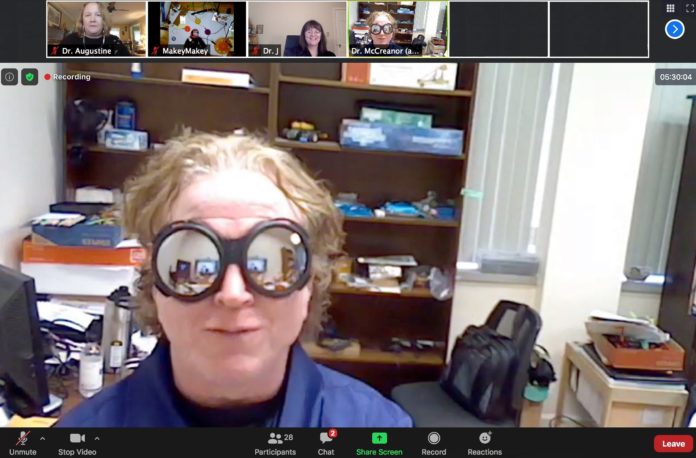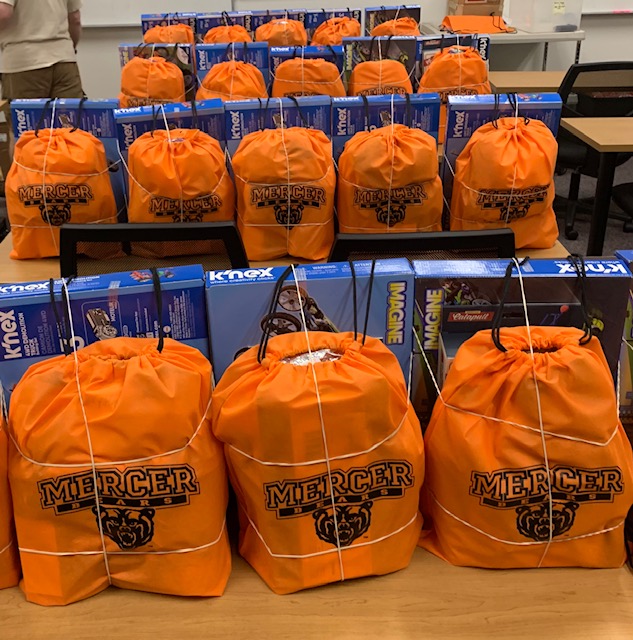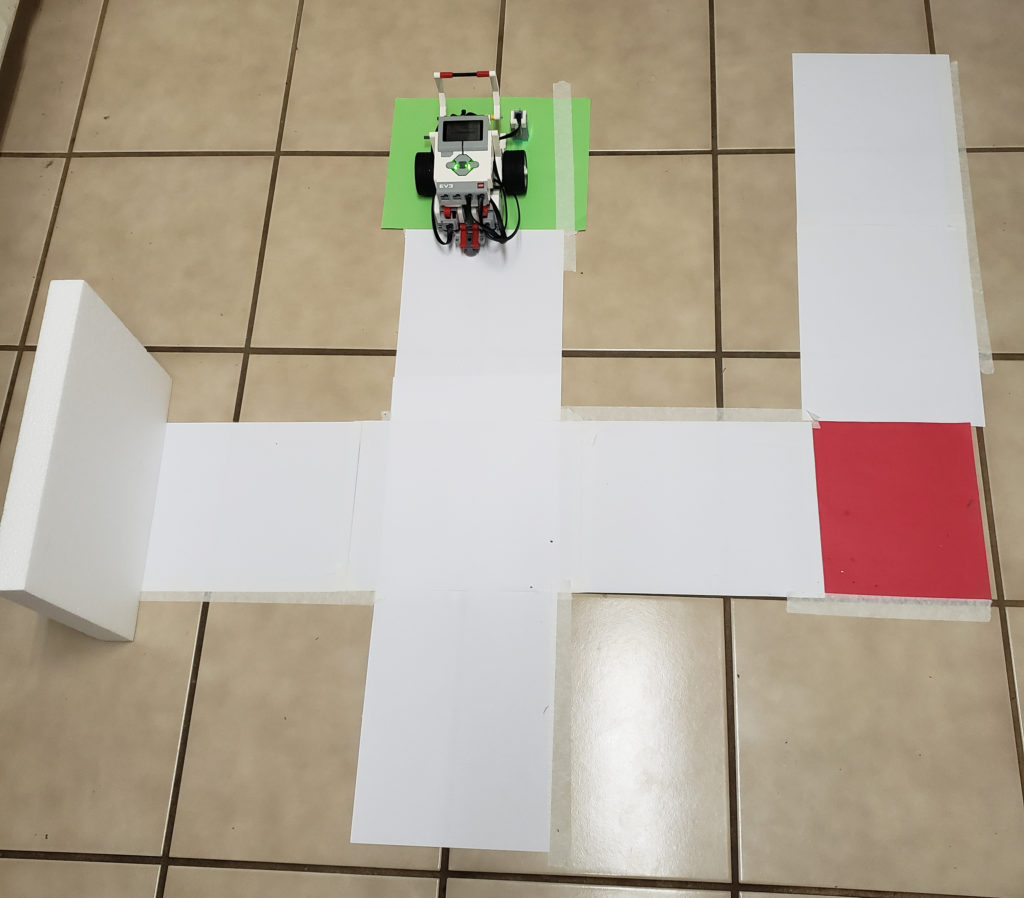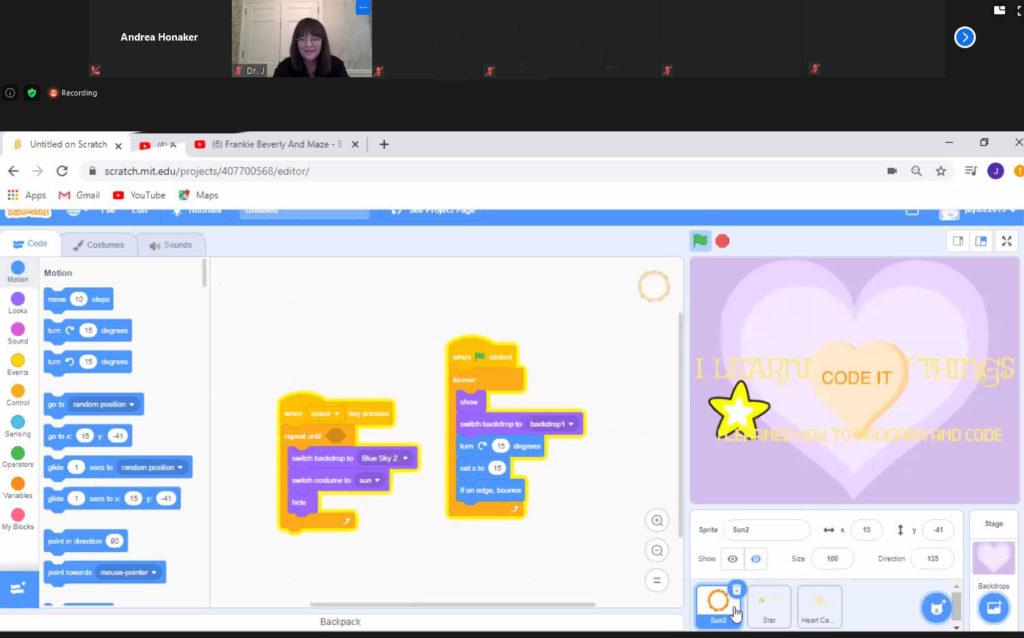
Summer camps hosted by Mercer University are teaching science, technology, engineering and math concepts to middle and high school students while also giving future teachers experience in the field.
The College of Education and School of Engineering wrapped up the sixth Middle School STEM Camp and High School Robotics Camp at the end of June, with this year’s events adapted to virtual formats. The events were free to the participants.
The camps, created as a community outreach and to provide summer middle school teaching placements for students in Mercer’s Master of Arts in Teaching (MAT) program, started with support from the Woodrow Wilson National Fellowship Foundation, said Dr. Sharon Augustine, chair of teacher education for Mercer’s Macon campus and Regional Academic Centers and program director for the Woodrow Wilson Georgia Teaching Fellowship. The MAT program is designed for people who hold bachelor’s degrees in fields other than education and wish to earn master’s level certification to teach.
Initially, 24 participants from four Middle Georgia school districts attended the camps. With the addition of the Literacy for Learning, Living and Leading in Georgia (L4GA) grant through the Bibb County School District, participants have come from Weaver Middle School and its feeder high school, Westside, the past two years.

“A lot of our MAT students have been placed at Westside for their student teaching,” said Dr. Melissa Jurkiewicz, assistant professor of science and STEM education at Mercer. “Having that connection with those students is really powerful. Our Mercer students are able to see how important it is to build relationships through working in the STEM camp. It’s usually their first teaching placement.”
In addition to Dr. Augustine, other Mercer faculty involved were Dr. Jurkiewicz, Dr. Philip McCreanor and Dr. Judy Godfrey, who worked with the middle-schoolers, and Dr. Anthony Choi and Dr. Susie Morrissey, who worked with the high-schoolers. Thirteen MAT students were spread across the two camps this year, and a College of Professional Advancement graduate student and an engineering student provided technical support.
“It’s really good for faculty and grad students to be working together with K-12 students because it gives everyone the chance to debrief and learn from common clinical experiences,” Dr. Augustine said. “It provides a lot of teachable moments for faculty and students alike — everyone is transforming their practice.”
Previously, participants came to Mercer’s Macon campus for eight hours each day for a week. The content was spread across two weeks this year, and participants met on Zoom from 10 a.m.-noon and 1:30-3:30 p.m. every day. They were divided into Zoom breakout rooms with MAT candidates and Mercer faculty to receive small-group instruction and assistance as they worked on their projects.
They communicated and accessed content through a learning management platform called Edmodo. Materials for the activities were delivered to the campers prior to the start of the camp.
“It was a learning experience not only for the students but the fellows and faculty as well. This was real-life experimentation on how virtual learning takes place,” Dr. Choi said. “You can see the excitement. You can see the learning taking place.”
The first week, the middle-schoolers worked with a small electronics invention board called Makey Makey and a web-based programming language called Scratch. Using those two platforms, they completed coding activities and made their own creations, such as video games or sound boards, Dr. McCreanor said.
The second week, they learned how motors work by building K’Nex model cars and testing their speed and strength. They also did a catapult activity that taught them about experimentation and creating graphs from data.

“We’re really just giving them an ember to take with them during the school year,” Dr. Augustine said. “I think it builds confidence, it sparks interest and it also just validates that you can do anything. In camp, we say you should embrace your optimal level of confusion. Being confused means you’re building those connections in your brain. Camp is about not knowing everything and learning about it.”
The high-schoolers gained a fundamental understanding of robotics concepts. They worked on various challenges to see how their robots reacted to different sensors, Dr. Choi said. At the end of the two weeks, they sent their robots through two more advanced challenges, one that involved following a line with sharp turns and another that simulated finding a fire station in a neighborhood.
“I think it’s a great opportunity for the students to get involved in programming because it’s a need, and it’s also a good career path,” Dr. Morrissey said. “It introduces them to something that may seem intimidating, but once they get into it they see that it is possible and they can pursue a career in it.”
The camps also provided some normalcy for the middle- and high-schoolers in a time of uncertainty, said Cherri Nix, STEM coordinator for the Bibb school district. Students may not have visited with their friends in a while, and this gave them an avenue to connect and talk with other teens. They also gained more confidence working in an online atmosphere and collaborating virtually.
Forging bonds with students is easier in person, so the camp organizers were very intentional about how they recreated that in the virtual format this year, Dr. Jurkiewicz said. They aimed for a laid-back, informal atmosphere that allowed time for the content to be covered as well as conversations, so everyone could get to know one another.
“We thought having good relationships with kids would be more difficult, but it’s been better in a lot of ways,” Dr. McCreanor said. “We’re with that group of students in smaller, targeted settings and breakout sessions.”
Jamie Baggett, a graduating MAT student, helped with the STEM camp the past two years. Last year, she led STEM daily starter activities and assisted participants as needed. This year, she also mentored the incoming cohort of MAT students. She said the experience has boosted her confidence as she prepares to start teaching eighth-grade physical science at Rutland Middle School in Bibb County this fall.

“I really liked seeing how excited the students were about camp and how they were saying they wished it would last all summer,” she said. “It’s great to see that they’re picking up these STEM concepts easily, and hopefully, they’re able to carry them on in school or other things they want to do with their lives. It’s interesting to see that something like this can have such an impact on them.”
Brianna Harris, a graduating MAT student who will teach physics at Centennial High School in Fulton County this fall, worked with the robotics camp the last two years but had a more hands-on role this time in the organization and structure of the event.
She said the camp has shown her how to be more intentional in keeping students engaged in a virtual setting. She will be able to apply the planning and instruction experience to her future classroom.
If conditions allow, campers will showcase their work in the fall during a family STEM night at Weaver Middle School, with the whole community invited, Nix said. This will help support and generate interest in Bibb County’s STEM initiatives. The district has several schools working toward state STEM certification, a rigorous three-year process, and Alexander II Magnet School is set to be the first this fall.









